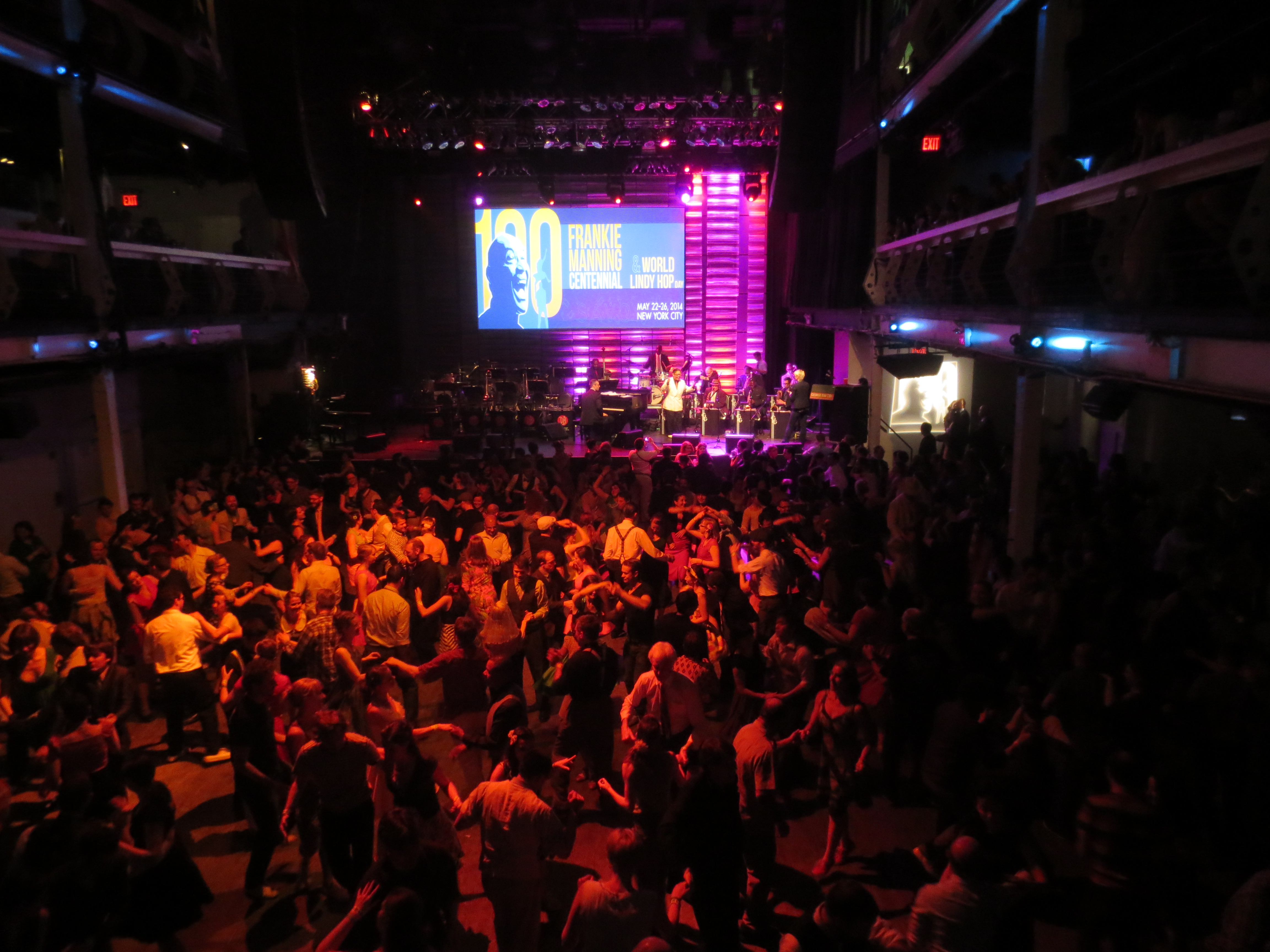Here’s another reason why #blacklindyhopmatters.
All this week I’ve been participating in the Get Free Hip-Hop Dance Festival, a week of urban dance classes, talks and competitions in San Francisco. Today, a panel of female artists were talking about feminism and hip-hop. One Black dancer explained how she was in the process of discovering the roots of urban dance, going back to lindy hop and authentic jazz.
She described how she had the opportunity to go to the Frankie 100 Celebration in New York City in 2014. Here’s the gist of what she experienced:
“When I walked into that ballroom, I felt a strange mixture of emotions. On the one hand, I felt like I was coming home, reconnecting to a tradition that my people created. On the other hand, I also felt very isolated as one of the handful of Black female dancers there in a five story ballroom full of people.”
That duality of feeling both happiness at participating in something that you have a cultural connection to, and also alienated from it because you are a minority in the community, is something I’ve heard from several other Black dancers. It’s not something I can easily relate to, as an Asian American. But I can imagine how confusing and troubling that might feel.
It reminded me of what African-American tradition bearer Latasha Barnes said at the recent panel at Lincoln Center on the history of lindy hop:
It’s as if you had this beautiful house that you established with your community. And you needed someone else to watch the house because you had to move on to do another thing. If you find someone who loves the thing as much as you do, then you give them the keys. You tell them how to take care of the plants, take care of the yard, maintain the structure.
And then you go away and they do a really good job. And then you come back, and you realize its going really well. You’re gonna be gone a lot longer than you thought, so you say, “go ahead and move in.”
And then you come back 30 years later, and they look at you like, “Who are you?”
It’s still your house. It still deserves to be respected as your house. You aren’t kicking them out. But you are saying, “let’s continue to maintain and share this together.” That’s what the community has been asking for.
But others felt that because they had been maintaining it for so long that it belonged to them. But that’s not how that works. There’s a difference between being an owner and being a steward.
There’s an intergenerational gap between that knowledge transference that we are trying to overcome. But to do that the doors have to be open a little bit more for us… for us to be present and not feel alienated in our own culture.”
I don’t have any easy answers. A first step is just listening to people’s experiences and feelings, particularly the negative feelings, and really try and empathize and understand them.
I think we can all do a better job at making sure that all people — particularly those who are part of the culture that created lindy hop — feel welcome and at home in our shared dance spaces.
